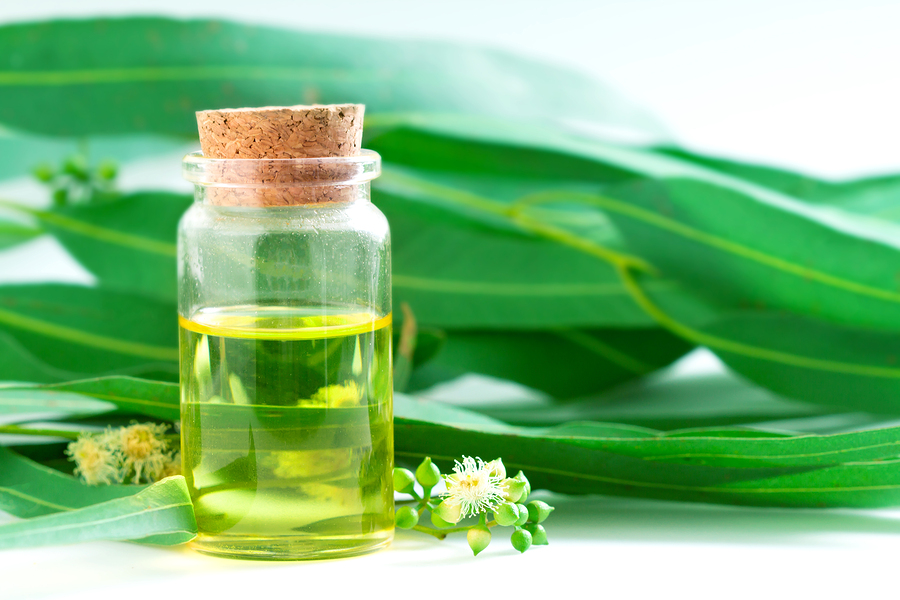- Make It Yourself Lavender Heart-Shaped Bath Bombs!
- 20 Things You Never Knew About “Down There”
- 12 Best Foods For Those Suffering From Arthritis Pain
- 12 Personal Hygiene Mistakes Almost Everyone Makes (Mom Never Told You About #4!)
- 15 Medicinal Plants And Herbs From The Cherokee People
- 12 Mind-Blowing Benefits Of Drinking Coconut Water During Pregnancy
- 12 Outstanding Winter Foods That Won’t Fatten You Up Like A Christmas Turkey
Top Health Benefits Of Eucalyptus Oil
Eucalyptus is one of those seemingly magic plants used in traditional folk medicine that has gone on to take the world by storm. Originally used by the Aboriginal people in Australia, eucalyptus has become renowned for both its healing properties and its soothing emotional effects.
In the early 1800’s, Aboriginal peoples showed settlers from Britain how to use eucalyptus to clean wounds by tightly binding the cut with leaves to form a bandage. They were amazed by how quickly the wounds would heal, and the ability of the plant to prevent infection. News quickly spread across this young country and by the 1850’s, eucalyptus oil was being distilled for commercial and medical purposes.
Eucalyptus is a type of flowering tree. Also known as “Kino” or “Tasmanian Blue Gum” trees, there are more than 500 species eucalyptus, the overwhelming majority of which are native to Australia. Some animals found only on the Australian landmass, such as koalas, feed almost exclusively on the leaves of these trees. While eucalyptus is now grown other parts of the world, the vast majority of eucalyptus products are still exported from Australia.
Eucalyptus leaves can be used directly or distilled to form an essential oil. This oil can be used topically and for aromatherapy purposes. The oil from eucalyptus is famous for its very strong, distinct scent, and an intense, cooling feeling on the skin.
The list below will focus on the specific applications and benefits of eucalyptus oil.
1. Cleaning Cuts and Wounds
Eucalyptus oil has antiseptic and antimicrobial properties which make it ideal for sanitizing wounds and preventing infection. Apply a small amount of the oil into minor cuts, scrapes, sores, or burns either on its own or with a bandage. Eucalyptus provides a natural cooling feeling that will sooth pain and will also speed up the healing process.
2. Relief for Respiratory problems
Eucalyptus oil has natural antifungal and decongestant qualities, which make it ideal for reliving symptoms of respiratory problems. Inhaling the scent and rubbing some oil on the chest can provide immediate relief. The next time you have a persistent cough or a cold, try using eucalyptus oil with a diffuser or applying some to a cotton ball and inhaling directing to take in the aroma, and see if it doesn’t alleviate symptoms.
3. Soothing Muscle and Joint Pain
Eucalyptus oil is a key ingredient in many pain relieving gels and creams, and with good reason: Its natural analgesic and anti-inflammatory properties help soothe muscle and joint pain. It is also ideal for easing discomfort caused by strained tendons and ligaments, and even rheumatism. Eucalyptus oil is also fine to apply to affected areas by itself. Rub a generous amount onto the skin of the sore region, and the cooling sensation will penetrate down into the tissue and ease away pain.
Continue to Page 2

Photo credit: bigstock.com
4. Hair care
Adding a few drops of eucalyptus oil to your hair can also rid your hair of lice, offering a safe and natural alternative to conventional lice treatments with harsh chemicals that get absorbed through the scalp.
5. Aromatherapy
The scent of eucalyptus is immensely beneficial for aromatherapy purposes. It can be used with a diffuser to provide a pleasant smell to the home. Eucalyptus is unique in that its scent is both relaxing and stimulating at the same time. The aroma provides a feeling of relaxation and stress relief, but eucalyptus also acts as a vasodilator, meaning it dilates the blood vessels, which increases blood flow to all areas of the body, including the brain. Since the brain is being provided with more oxygen-rich blood, it effectively stimulates mental performance.
For this reason, some school teachers have experimented with using eucalyptus with diffusers in their classrooms, under the assumption that the aroma may help their students think better. More testing needs to be done to prove if this actually works, but it does offer some exciting possibilities for academic performance enhancement.
6. Mouthwash
Many brands of mouthwash and toothpaste incorporate eucalyptus oil into their ingredients. Its refreshing taste and antimicrobial purposes make it ideal for cleaning out the mouth (especially around the gums) and warding off infections. You can also try using eucalyptus essential oil on its own or blended with water and peppermint oil as a natural, homemade mouthwash. (As with the commercial stuff, don’t swallow it.)
7. Sinus and Allergies
This oil opens up the sinuses and can provide some relief for those suffering from allergies who don’t want to take prescription drugs with unwanted side effects.
READ ALSO: The Magic Of Coconut Oil
The benefits listed above are just a sample of the healing potential of eucalyptus oil. These are general guidelines, and it is best to speak with a doctor or natural healthcare specialist to assess how best to use this incredible essential oil for your unique situation.
References:

































